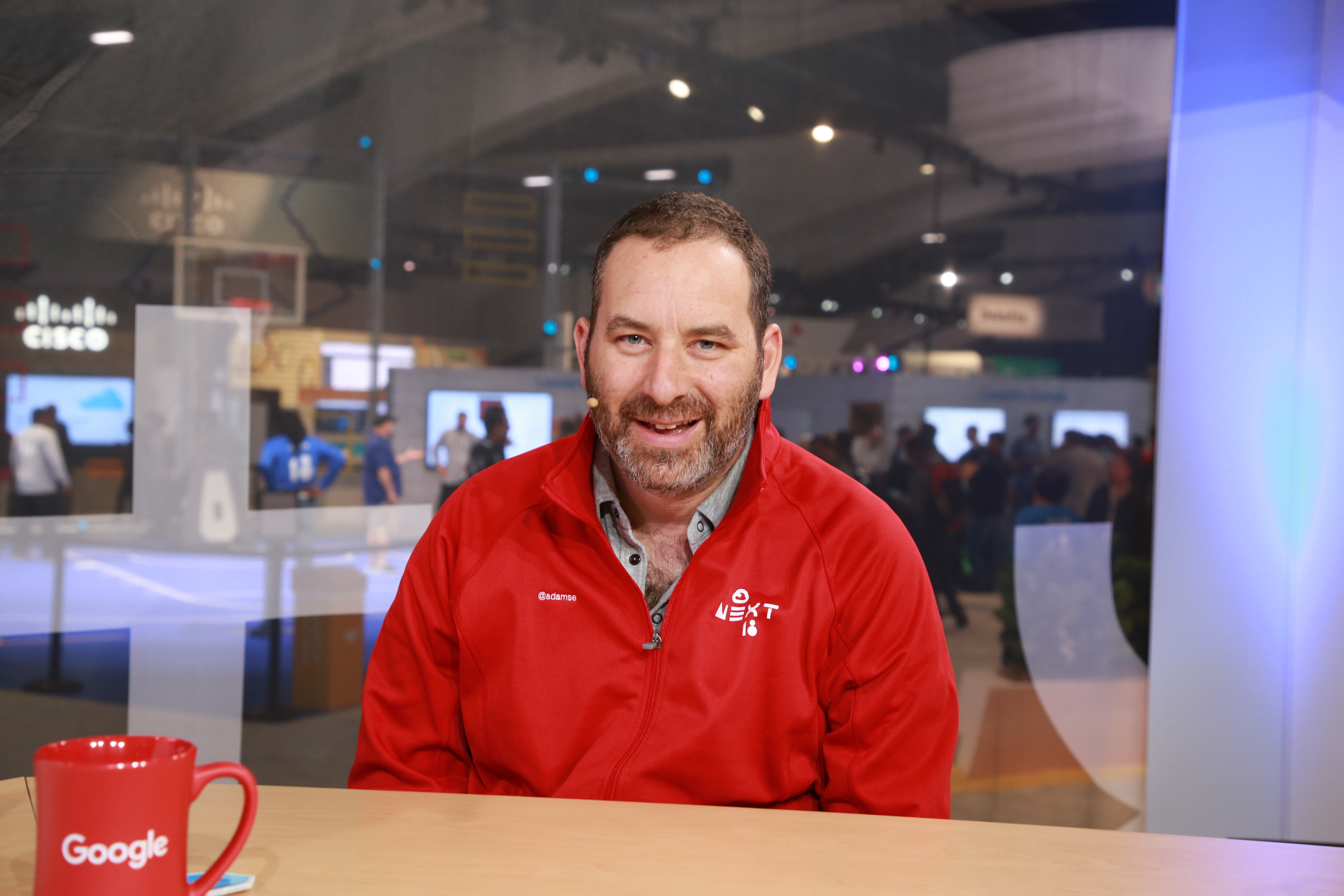 CLOUD
CLOUD
 CLOUD
CLOUD
 CLOUD
CLOUD
As Google LLC works to cement itself as a credible competitor to established players such as Amazon Web Services Inc., IBM Corp. and Microsoft Corp., the company is honing its offerings for a new enterprise market. By leveraging its legacy in open source, Google is differentiating itself as a specialized, solution-based cloud support partner through its revitalized commitment to developers.
“There’s around 22 million developers in the world, and we want to make every single one of them successful, build cool things, learn new technology and be part of the community,” said Adam Seligman (pictured), vice president of developer relations at Google. “I rally all of Google to stand for developers.”
Seligman spoke with John Furrier and Dave Vellante, co-hosts of theCUBE, SiliconANGLE Media’s mobile livestreaming studio, during the Google Cloud Next event in San Francisco. They discussed how Google is focusing on community as it works with developers in the cloud. (* Disclosure below.)
Google has long fostered a rich open-source community, with entire businesses built on a foundation of open-source tech. But as the market’s focus on data has increased the utility of an open network, Google has focused on taking that culture to the next level to enable better developer sharing around the skills and technology available through its network.
“Open source can really shape whole ecosystems and create a lot of opportunity and innovation,” Seligman said. “The challenge is doing it in a healthy, positive, community-centric way.”
Seligman, who kicked off the developer keynote Thursday morning at Next, champions developer customers at Google and ensures that culture of community is extended into all the company’s cloud tools and strategies.
“We have a lot of technology we’re opening up in the [developer operations] space, but it’s really a mentality,” he said. “It’s about building services for users and developers to consume, and flowing from code right out to running services. It’s a big change in how we think about continuous delivery and DevOps.”
With the transformations in data and overall processes, those changes could provide solutions for new business needs. Big data presents an opportunity, and Seligman said Google wants to expand that opportunity to more developers.
“We’re in a world where we now have a lot of data to program the world on, and it’s an incredible opportunity for developers. But if we just restrict it to a couple thousand data scientists, it doesn’t open up the world to everyone,” he concluded.
Here’s the complete video interview, part of SiliconANGLE’s and theCUBE’s three-day coverage of Google Cloud Next. (* Disclosure: Google Cloud sponsored this segment of theCUBE. Neither Google Cloud nor other sponsors have editorial control over content on theCUBE or SiliconANGLE.)
Support our mission to keep content open and free by engaging with theCUBE community. Join theCUBE’s Alumni Trust Network, where technology leaders connect, share intelligence and create opportunities.
Founded by tech visionaries John Furrier and Dave Vellante, SiliconANGLE Media has built a dynamic ecosystem of industry-leading digital media brands that reach 15+ million elite tech professionals. Our new proprietary theCUBE AI Video Cloud is breaking ground in audience interaction, leveraging theCUBEai.com neural network to help technology companies make data-driven decisions and stay at the forefront of industry conversations.